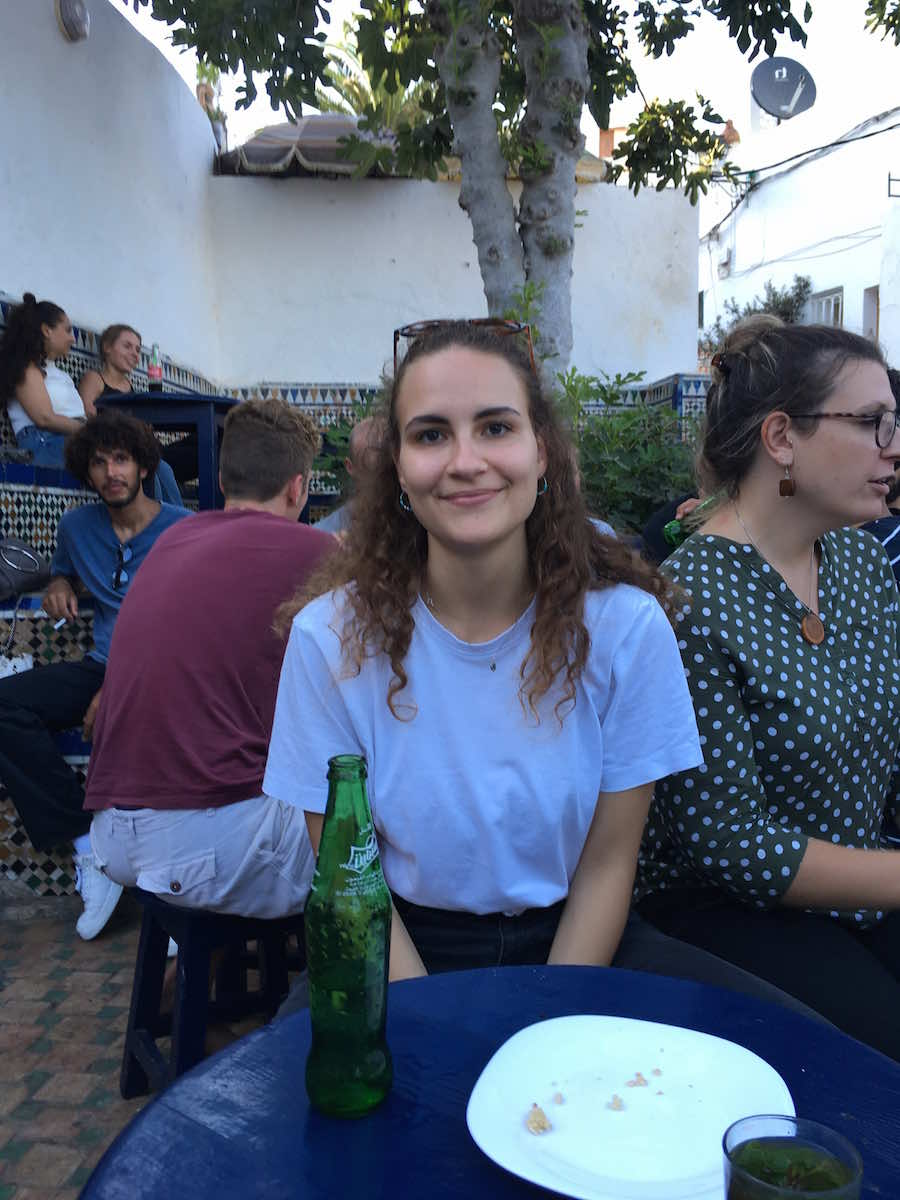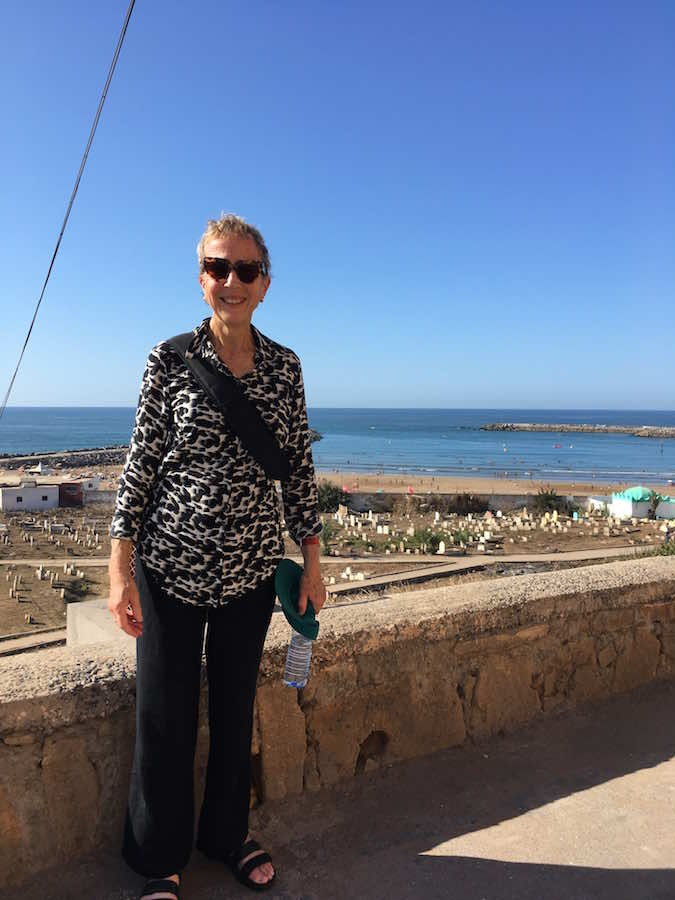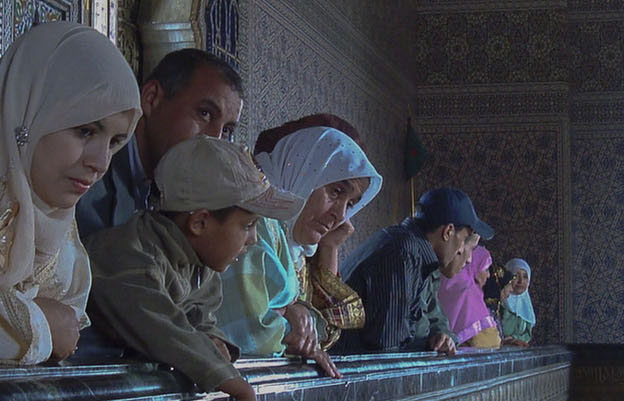Article about NIMAR in Morocco World News
Léon Buskens, the director of the Netherlands Institute Morocco (NIMAR), sat down to talk to Morocco World News.

Rabat – Leon Buskens visited Morocco in 1984 as a student for the first time. On September 9, 2019, he welcomed a new group of enthusiastic students from the Netherlands as director of the Netherlands Institute Morocco (NIMAR).
When NIMAR faced an uncertain future in 2015, the oldest university of the Netherlands, Leiden University, had the courage to make the institute part of its infrastructure. In 2017 the institute was officially reopened by the then Minister of Education, Jet Bussemaker in the presence of the president of Leiden University Professor Carel Stolker and the mayor of Rotterdam, Ahmed Aboutaleb.
Under the aegis of Buskens, NIMAR has not only maintained a steady course but has safeguarded its future by being granted official funding by the Ministry of Education in early 2019. What is the role of NIMAR in contemporary Morocco and what do this year students hope to achieve during their four months stay?
Main goal
“Naturally, education is our main goal. Any student that is registered at a Dutch university or university of applied sciences, can participate in our education program. In addition, NIMAR not only aims at facilitating but also strengthening the collaboration by both Moroccan and Dutch scientists. The research fields encompass a variety of landscapes, but mostly focus on the humanities, social -and political sciences.”
Buskens stresses that students do not only remain within the academic confinements of NIMAR, but are given many possibilities to sink their teeth into Moroccan society as well. “Students frequently stay with host families who are more than happy to teach them about customs, traditions and Moroccan culture in general. This creates a proper place for interaction, in which both Dutch and Moroccan students not only increase their knowledge, exchange lively opinions and widen their horizons, but grow out to be young adults who look beyond the limits of their comfort zone as well.”
Why Morocco?
“Being an anthropologist, I have an enormous interest in the way how people live in different cultures around the world. During my studies, I learned that Morocco can be observed in many different ways. Among else it is part of ‘Dar al-Islam’, it lies within the Arabic sphere of influence and is geographically located in North-Africa. However, what sparked my interest most, was the way how Morocco was regarded as part of the Mediterranean.
“In a different day and age, The Netherlands and Morocco functioned as the opposite, outer borders of the Roman empire and later shared, let’s put it diplomatically, a certain annoyance with respect to the Habsburg dynasty in Spain. In other words: History shows us that Morocco, as part of the Mediterranean, has functioned as a cradle for cultural exchange throughout the centuries.”
Though Buskens had studied the history, culture and art of Morocco, the first encounter with the country left a memorable impression. “I grew up in a small village in the south of the Netherlands, and I can tell you it was quite a shock when I arrived in Morocco for the first time in 1984! What you have to realize is that back in those days, young Europeans with full beards were often regarded as tourists in search of the finest Moroccan hashish. Though I can safely say I did not come to Morocco for Sex, Drugs and Rock ‘n Roll. I came in the humble capacity of an academic and wanted to know in what ways I could conduct my research.”
Fear and anxiety
But a lot has changed since 1984. Now we live in turbulent times where distrust, fear, and anxiety flourish. During the official reopening of NIMAR in 2017, Jet Bussemaker as the then Minister of Education stressed the importance of NIMAR in a world dominated by increasing Islamophobia: “NIMAR can bring the worlds of the Netherlands and Morocco closer together by sharing knowledge about Morocco, the Arab world and Islam. Studying these topics in their own context is crucial if we want to really understand one another.”
Buskens suggests that looking back at shared history is the antidote for the West’s growing Islamophobia: “Don’t forget, The Netherlands colonized Indonesia for over four centuries and thereby forcefully conjoined with the most populous Islamic country in the world! Once again, it is very worthwhile to study history in order to see what parallels can be drawn. Have people in the past expressed similar fears compared to today? What was the tone of public opinion with respect to Islam back then? Questions worthy of asking in our post-colonial world.”
Through the eye of the students
Though shocked by the attacks on two Scandinavian tourists in 2018 Sara, a 22-year-old German-Moroccan was determined to come to Morocco. “Naturally it was very shocking to hear this dreadful news. It has definitely changed my perception of traveling alone as a woman in Morocco, but the solidarity that was expressed by Moroccans in the aftermath of the attack was heartwarming.”

Sara has come to Morocco to properly discover her own identity, shaped by her Moroccan father and German mother. “There has always been a rather undefined part of me rooted within Morocco that I have always considered part of my identity. In the upcoming months, I hope to get more clarity on this.”
Those who are laboring under the misapprehension that NIMAR is only playing host to young, adventurous students in search of their own identity, are mistaken. At the age of 69, Anne-Marie has seen quite a lot of the world and is not nearly ready to put away her traveling shoes. “I have always been very keen to properly learn Arabic, but never seemed to get around to it. NIMAR is providing me with the possibility to not only study Arabic extensively at the institute, but I get to practice Arabic on a daily basis by staying with a host family in the Medina.”

Whereas Anne-Marie has traveled around the world and regularly stepped out of her comfort zone, Cemal thought it was high time to he did so too. “Up till now, I have dedicated much of my life to studying and thought it was high time for a change! I was born in the Netherlands, but have a Turkish-Moroccan background. Understanding Darija is therefore not very difficult for me, but I still have a lot to learn before I can properly bargain in fluent Darija with the better merchants of Rabat.”


